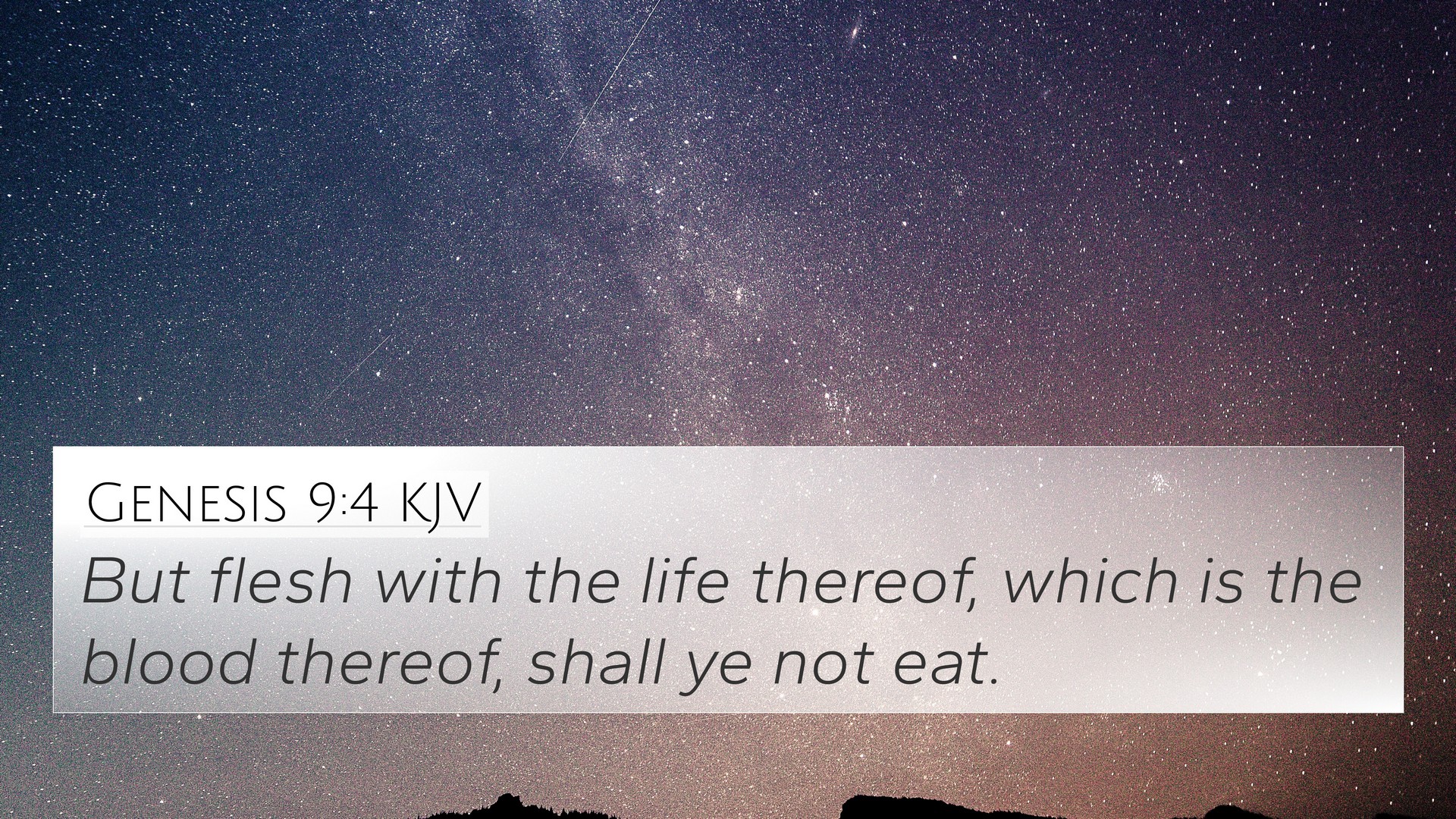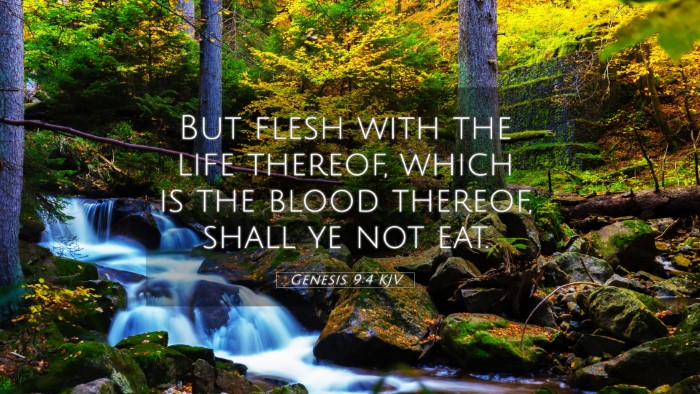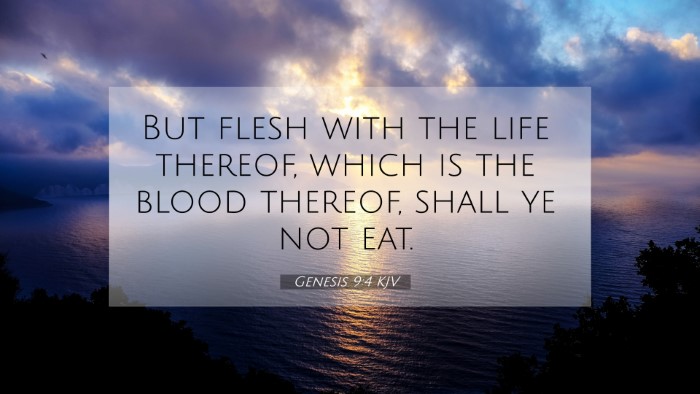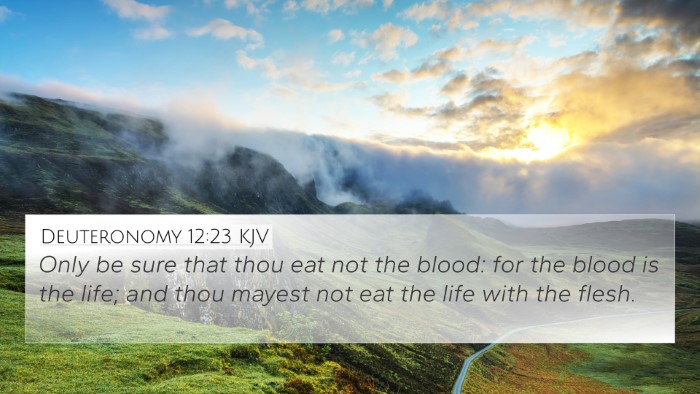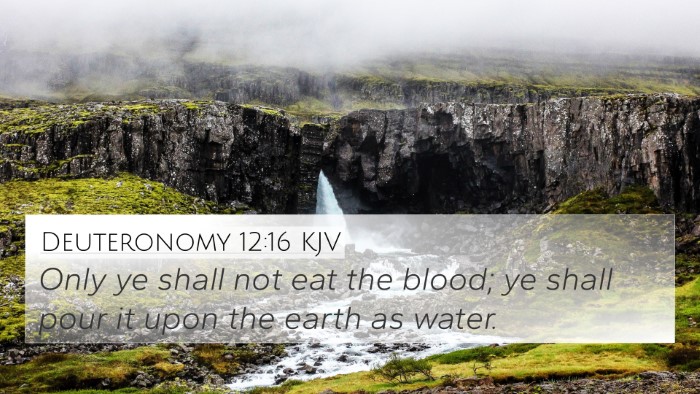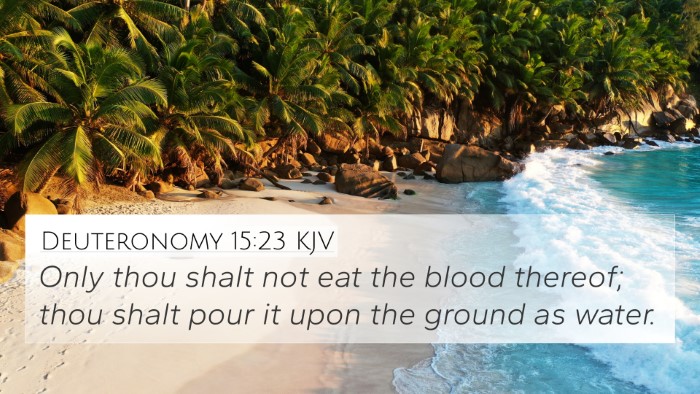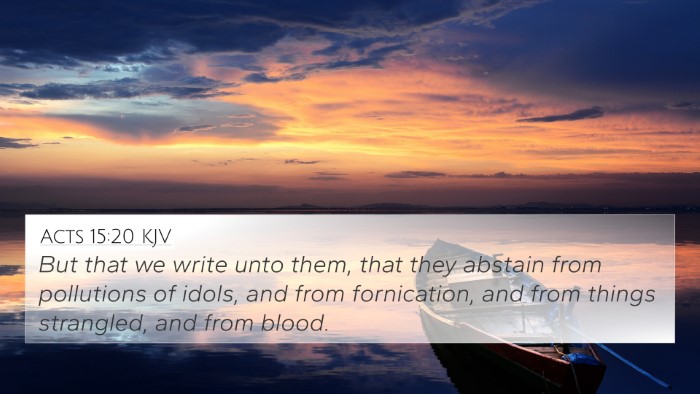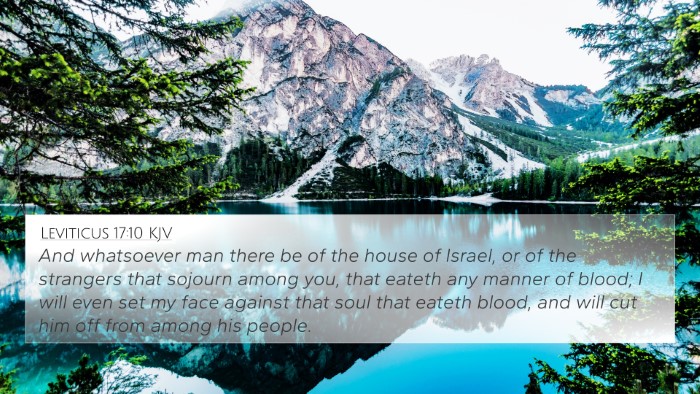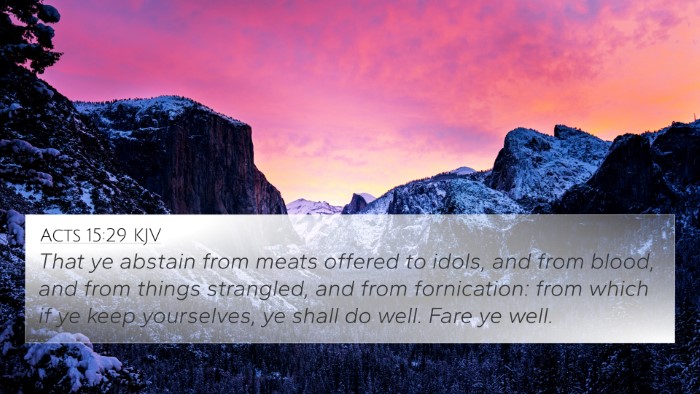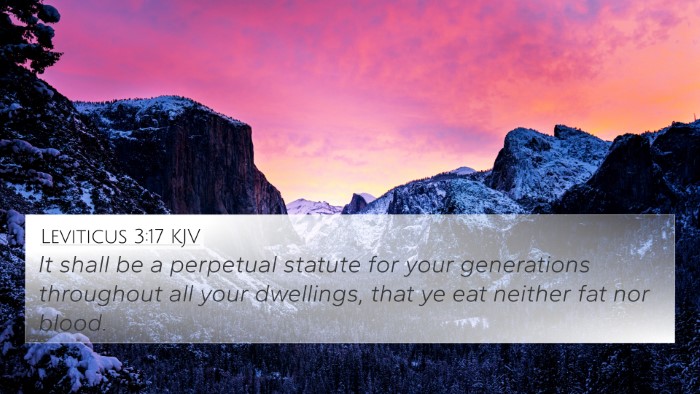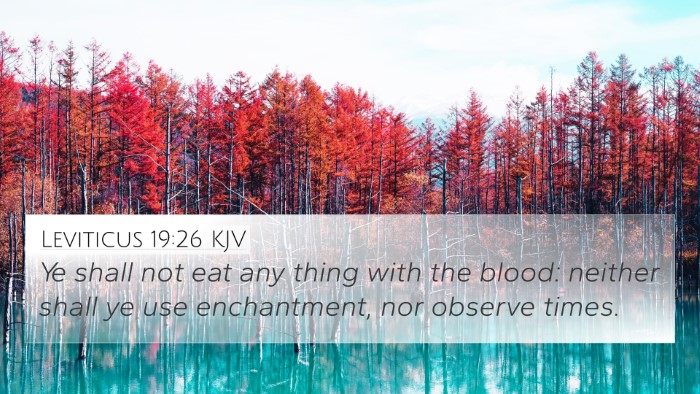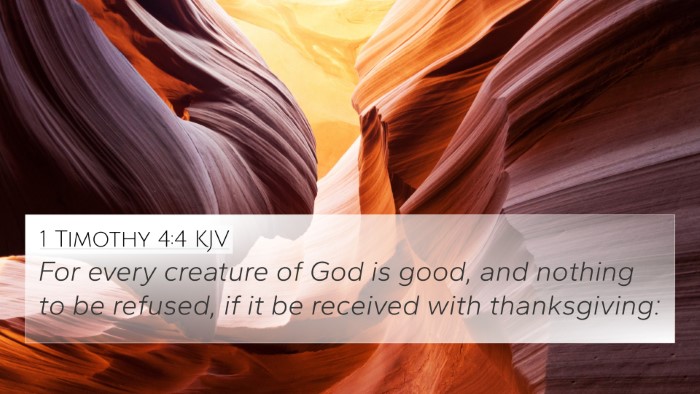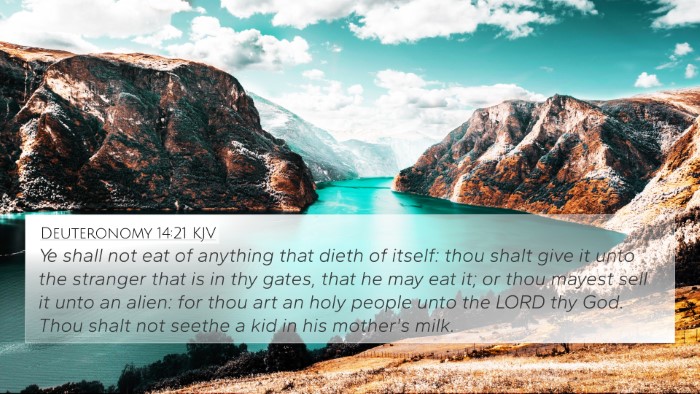Understanding Genesis 9:4
Verse Reference: Genesis 9:4 - "But you shall not eat flesh with the blood in it, that is, its blood." (ESV)
Summary of the Meaning
This verse is part of God’s covenant with Noah after the flood, which emphasizes the sanctity of life and the prohibition against eating blood. It serves both a dietary guideline and a moral reminder of the value of human life.
Commentary Insights
Matthew Henry: Henry discusses the significance of blood in the biblical context as it represents life. He highlights that the consumption of blood is not only a dietary law but is reflective of a deeper spiritual truth regarding the value placed on life and blood in covenantal relationships.
Albert Barnes: Barnes notes that God declares the prohibition against consuming blood as a measure to protect human life. He mentions that blood symbolizes atonement and sacrifice, and thus not eating blood underscores the sacredness of life and its consequences.
Adam Clarke: Clarke elaborates on the cultural context of blood consumption in ancient societies. He explains how this prohibition differentiates the Israelites from other nations and instills in them a sense of moral responsibility towards life.
Thematic Connections and Cross References
Genesis 9:4 has several important connections with other Scriptures, emphasizing themes of life, sacrifice, and divine commandments:
- Leviticus 17:10-14: This passage reinforces the prohibition against consuming blood, stating that it represents the life of the flesh.
- Acts 15:29: In this New Testament decree, the apostles instruct believers to abstain from blood, showing the continuation of this principle.
- Hebrews 9:22: This verse discusses the necessity of blood for atonement, tying the significance of blood back to the covenant and sacrificial system.
- Deuteronomy 12:16: This verse reiterates the command not to eat blood, ensuring adherence to God’s laws about life and purity.
- 1 Corinthians 11:27-29: Paul discusses the importance of discerning the body and blood of Christ, drawing upon the Old Testament foundation of blood's significance.
- Matthew 26:28: Jesus speaks of His blood in the context of the new covenant, connecting the Old Testament insights with New Testament fulfillment.
- Exodus 12:7: The Passover lamb's blood serves as a protective sign, exemplifying the role of blood in covenant and deliverance.
- Romans 12:1: Paul urges believers to present their bodies as living sacrifices, mirroring the significance of life that blood underscores in Genesis.
- Revelation 7:14: References to those washed in the blood of the Lamb reflect the ongoing theme of redemption tied to blood throughout Scripture.
Applying Cross-References
Understanding Genesis 9:4 can be enriched through these cross-references. By studying these connections, one can see how themes resonate from the Old Testament into the New Testament, enhancing the biblical narrative about the sanctity of life and the importance of obedience to God’s laws.
Why Cross-Referencing Matters
Utilizing a Bible concordance or Bible cross-reference guide is invaluable for deepening one’s understanding of Scriptures. It allows believers to:
- Identify connections between Bible verses.
- Engage in comparative Bible verse analysis, seeing how various scriptures support each other.
- Reflect on thematic connections throughout the Bible.
- Prepare for studies or sermons through Bible cross-references for sermon preparation.
Conclusion
Genesis 9:4 serves as a profound reminder of the value of life from a biblical perspective, underscored by the divine guidance against consuming blood. Through exploring the inter-Biblical dialogue, believers can grasp a comprehensive view of the themes of sacrifice, sanctity, and obedience woven throughout Scripture.
